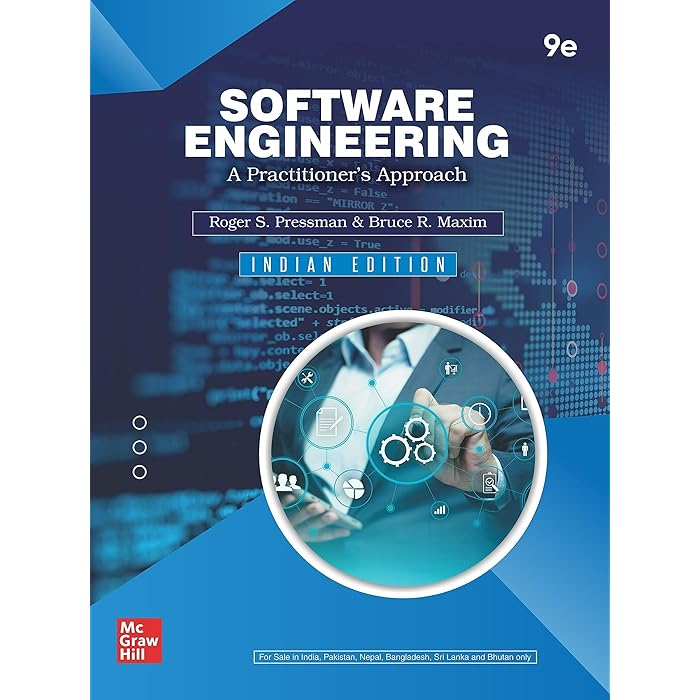Description
*Software Engineering: A Practitioner’s Approach* is a well-known textbook written by **Roger S. Pressman**. It serves as a comprehensive guide to the field of software engineering and is widely used in academia as well as by professionals in the software industry.
### Key Features of the 9th Edition:
– **Updated Content:** The 9th edition includes the latest developments and best practices in software engineering, reflecting changes in the industry and evolving methodologies such as Agile, DevOps, and cloud computing.
– **Comprehensive Coverage:** The book covers topics ranging from software development life cycles, project management, and software design to advanced topics like software testing, quality assurance, and maintenance.
– **Case Studies and Examples:** It provides practical case studies, real-world examples, and techniques that software engineers can use in their daily work.
– **Methodologies:** Emphasis on both traditional and modern software engineering methodologies, including Waterfall, Agile, and Unified Process.
– **Focus on Software Design and Architecture:** Detailed discussions on key areas like system design, requirements engineering, architecture, and code-level concerns.
– **Ethics and Professionalism:** The 9th edition continues the tradition of addressing the ethical and professional responsibilities of software engineers.
### Common Topics in the Book:
1. **Software Process Models** (e.g., Waterfall, Agile, Iterative Models)
2. **Project Management** (e.g., Cost Estimation, Scheduling, Risk Management)
3. **Requirements Engineering** (e.g., Gathering, Analyzing, and Specifying Requirements)
4. **System Design and Architecture** (e.g., Design Patterns, UML, and Design Principles)
5. **Testing and Quality Assurance** (e.g., Unit Testing, Integration Testing, Validation, Verification)
6. **Software Maintenance** (e.g., Debugging, Refactoring, Software Evolution)
7. **Emerging Technologies** (e.g., Cloud Computing, Mobile Development, DevOps)
8. **Ethical Considerations** (e.g., Data Security, Privacy, and Professional Integrity)
### Audience:
This book is suitable for:
– **Students** pursuing software engineering courses.
– **Professionals** in software development and related fields.
– **Software Engineers** who want to update their knowledge with modern practices and methodologies.





Reviews
There are no reviews yet.